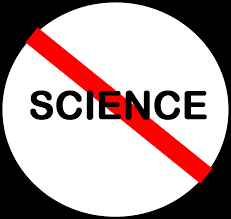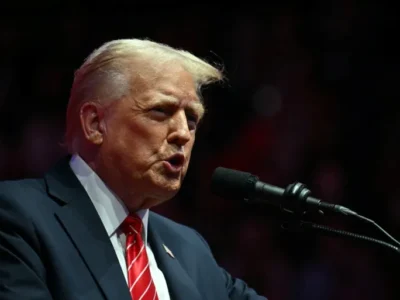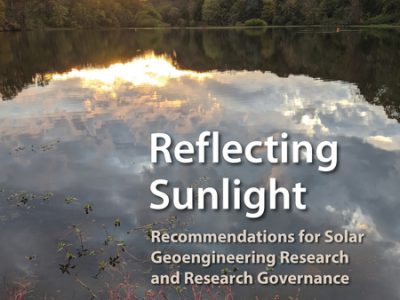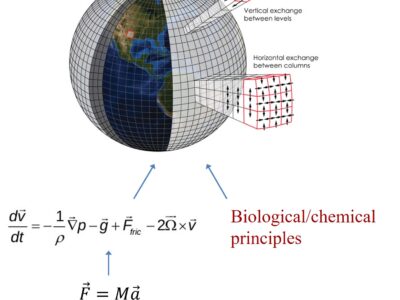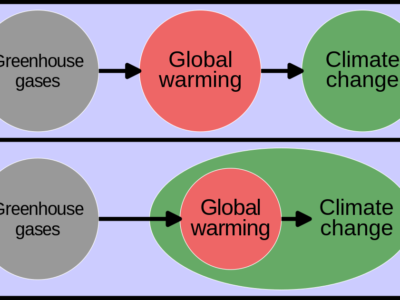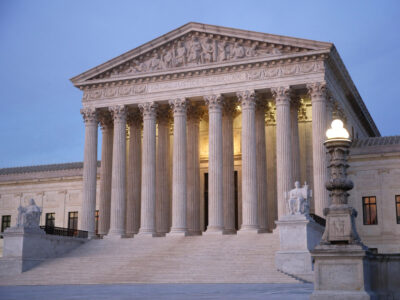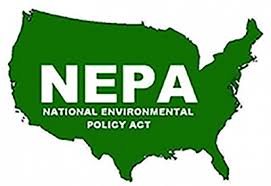environmental science
Willful Ignorance as Government Policy
The Trump Administration is systematically shutting down sources of vital information.
There is a deep anti-intellectualism embedded in MAGA. As RFK Jr. advises people, why pay attention to scientists when you can just “do the research” in the far corners of the internet?
There’s also the fear that data and research may not fit its political agenda. For instance, better information about extreme weather could support more robust programs to deal with those threats rather than supporting massive budget cuts. More robust government programs aren’t part of the MAGA agenda. Even worse, information about extreme weather would also shed light on climate change, a taboo subject.
100 Days of Anti-Environmental Mayhem
A flood of anti-environmental initiatives threatens to undo decades of progress.
the Administration has withheld funding for clean technology, denounced the very idea of environmental justice, and begun a campaign to gut environmental agencies. And that’s only the first hundred days of Trump’s second term.How far Trump gets with this anti-environmental jihad will depend partly on the courts but mostly on politics. Events relating to the economy and provision of basic government services are likely to have as much impact on how things play out than anything specific to the environment.
CONTINUE READINGUndermining Science in the Name of Ideology
There’s no room in MAGA for free scientific inquiry.
The Trump Administration seemingly views scientific research as a threat. The result has been a wave of censorship and a general effort to undermine the scientific enterprise. This article compiles examples of anti-science actions.
CONTINUE READINGTrump Shoves Economic Analysis and Science to the Curb
The MAGA agenda takes precedence over data and analysis.
If you were looking for data-driven regulatory policy, you’re not going to find it in this Administration. On the contrary, Trump has marginalized economic analysis and wants to bulldoze environmental science. Thus, we are likely to get policies that are bad for the environment without being cost-justified, while ignoring policies who environmental benefits outweigh economic costs.
CONTINUE READINGThe 2024 Election Outcome Could Boost the Case for Geoengineering
A Trump victory would increase the odds that we will ultimately need to start blocking solar radiation as a last resort to limit climate change.
A Trump victory would increase the odds that we will eventually need to “break the glass and pull the red lever.” To be prepared for that possibility, we would also need to do more in the short term to research various forms of geoengineering, their feasibility, and their potential side effects. Basically, if you decide you’re going to start smoking a lot more cigarettes, you need to be prepared for the greater likelihood you’ll need chemo.
CONTINUE READINGModel Uncertainty in Politics and Climate Policy
The polls could be systematically off, not just due to random error. That’s a worry with climate models as well.
Yes, your favored candidate could sweep the swing states, and yes, climate change could be more moderate than we now expect. But that shouldn’t give you much comfort on either issue, since the errors could equally be in the opposite directions.
Obviously, we’d like to improve our models, but that’s not always easy. In the meantime, the smart thing is to plan on the basis of the best models we have but avoid overconfidence about our predictions.
CONTINUE READINGLet’s Make Tomorrow “National Climate Awareness Day”
Here’s the case for setting aside a day to think about climate change, and why that day should be Aug. 23
Creating National Climate Awareness Day would send a message about the importance of climate change. It would also provide an occasion to educate Americans about the issue. If it can also celebrate modern science, and the contributions of women to science, all the better. And all it would take is a Presidential proclamation.
CONTINUE READINGChevron Gets the Headlines, But State Farm May Be More Important
The abortion pill case could undermine the authority of agency’s expert judgments.
The Chevron doctrine requires judges to defer to an agency’s interpretation of a statute if that interpretation is reasonable. The State Farm case, which is much less widely known, requires courts to defer to an agency’s expert judgment unless its reasoning has ignored contrary evidence or has a logical hole. As you probably already know, …
Continue reading “Chevron Gets the Headlines, But State Farm May Be More Important”
CONTINUE READINGThe New Particulate Standard and the Courts
The tough new air quality standard is sure to be challenged in court. Winning the challenges will be tougher.
EPA has just issued a rule tightening the air quality standard for PM2.5 — the tiny particles most dangerous to health — from an annual average of 12 μg/m³ (micrograms per cubic meter) down to 9 μg/m³. EPA estimates that, by the time the rule goes into effect in 2032, it will avoid 4500 premature …
Continue reading “The New Particulate Standard and the Courts”
CONTINUE READINGMore Unforced Errors in the 2023 NEPA Amendments
Bluntly speaking, the statute is a mess.
When the 2023 amendments to NEPA passed as part of the debt ceiling bill, I wrote a series of blog posts about the drafting errors. It turns out that I missed some, as I discovered when working on the new edition of my environmental law casebook. They really aren’t all that subtle, and it’s hard …
Continue reading “More Unforced Errors in the 2023 NEPA Amendments”
CONTINUE READING



